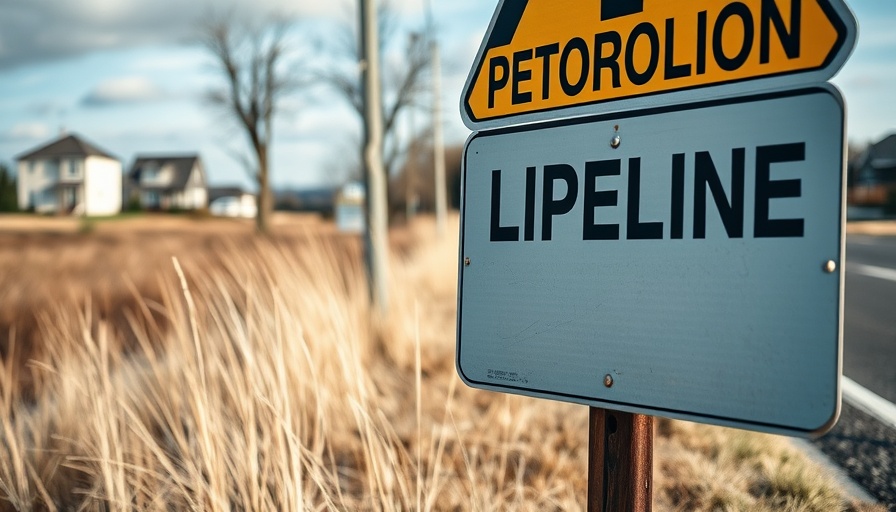
Community Outrage Over Jet Fuel Leak
Residents of Washington Crossing, Pennsylvania, are facing a grim reality—underground jet fuel has contaminated their drinking water. This alarming issue only came to light when Kristine Wojnovich noticed a disturbing taste and smell emanating from her kitchen faucet. After contacting Sunoco Pipeline, the operator of the nearby Twin Oaks pipeline, initial tests claimed there was no oil or gas present. However, as complaints mounted and months passed without resolution, it became evident that the problem was far worse than anyone expected.
The Duration of Neglect: A Timeline of Events
When Wojnovich first reported the issue in 2023, it took 16 months and persistent pressure from community members for Sunoco to confirm a leak in the pipeline. This delay is reflective of concerning trends in pipeline management. According to Robert Hall, a former federal pipeline safety regulator, Sunoco is not known for its proactive approach in managing risks. “A pipeline company that's more aggressive in follow-up would have identified it sooner,” he states, highlighting systemic flaws in safety protocols.
The Impact of Contamination on Local Health
With at least 38 wells now confirmed contaminated, concerns over public health are growing. Residents relying on wells for their cooking and drinking water are left feeling unsafe in their own homes. Wojnovich vividly recounted discovering 15 gallons of jet fuel in her well, an alarming figure that underscores the gravity of the situation. As the leak continues to seep into local water supplies, the community’s worry is palpable. “Would you stay if there was 12 feet of jet fuel found on your well?” she asked, expressing the thoughts of many residents.
Pipe Dreams: Future Prospects for the Neighborhood
While Sunoco has committed to cleaning up the neighborhood by installing “advanced water filtration systems,” residents like Wojnovich are skeptical. Living in a community frequently subjected to pipeline issues raises the question: how often are residents willing to endure this menace? With federal oversight concerns and the frequent incidents of pipeline spills—Sunoco reported more spills than any other U.S. pipeline operator in 2024—local residents are understandably anxious about whether they can ever return to safe, clean water.
Possible Solutions and Advocacy
Community advocacy could play a significant role in holding companies accountable. As Wojnovich turned to legal action against Sunoco, awareness about pipeline safety emerged as a collective concern. This might encourage stricter regulations and greater transparency from pipeline operators moving forward. Bringing the issue into the public eye not only aims for compensation but could also deter further negligence.
A Call to Action for Residents and Regulators
This situation begs a broader discussion—how can communities protect themselves from corporate negligence and harmful environmental practices? Residents are urged to stay vigilant, report any anomalies, and connect with advocacy groups aimed at promoting stronger environmental protections. Unfortunately, the consequences of this leak will likely resonate within the community and beyond for years to come.
As their struggle continues, it is imperative that residents stay informed about their rights, support local advocacy initiatives, and keep pressing for accountability. With the health of the public and the environment at stake, action is necessary not just from the community, but from regulators and lawmakers, too.
 Add Element
Add Element  Add Row
Add Row 



Write A Comment